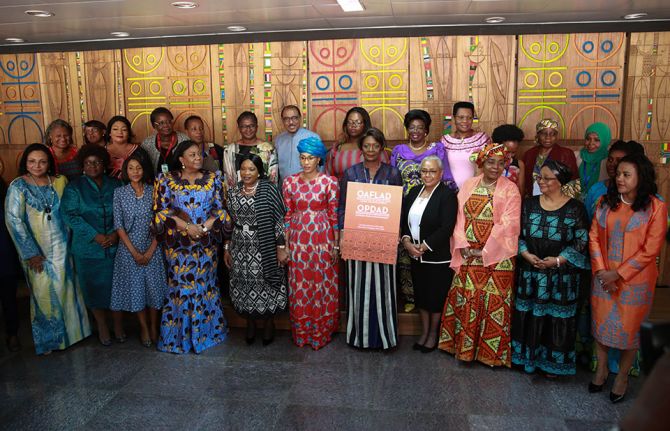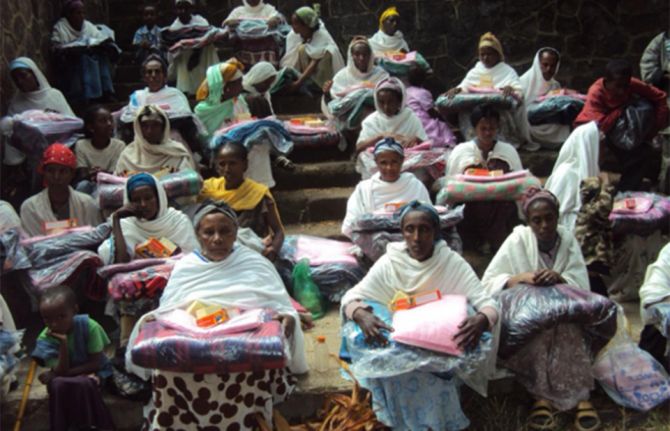

Feature Story
OAFLA to broaden its scope of work
14 February 2019
14 February 2019 14 February 2019The Organisation of African First Ladies against HIV/AIDS (OAFLA) has announced that it is to expand its scope of work to incorporate a broader range of development issues affecting the continent. OAFLA has also changed its name, to the Organization of African First Ladies for Development (OAFLAD), and adopted a vision of “A developed Africa with healthy and empowered children, youth and women”.
During its General Assembly, held in Addis Ababa, Ethiopia, on 11 February, the newly established OAFLAD endorsed its 2019–2023 strategic plan, which outlines the key thematic areas that the first ladies will be working on. These include a continued focus on reduction of new HIV infections and AIDS-related mortality, noncommunicable diseases, gender equality, women’s and youth empowerment, reproductive, maternal, newborn and child health, social security and social protection.
In a tribute to Michel Sidibé, the Executive Director of UNAIDS, the First Lady of Burkina Faso and Chair of OAFLAD, Sika Kaboré, said, “What we will remember from Michel Sidibé’s career is that we can reach ambitious targets if we believe in them, if we unite our forces strategically and if we keep our faith in our populations and in the African values of solidarity and sharing.” A number of first ladies added words of support and appreciation for Mr Sidibé’s leadership and engagement over many years, and he was awarded a certificate of appreciation.
“UNAIDS has worked hand in hand with the Organisation of African First Ladies against HIV/AIDS since that very first meeting in 2002. I had the privileged to be there then and I have the privilege to be with you still today. I urge you all to remain committed to ending AIDS, because together we can ensure a better future for our children and young people, and a generation free from AIDS,” said Mr Sidibé.
The first ladies committed to continue to work on one of their flagship campaigns, Free to Shine, a campaign to end AIDS among children, adolescents and young people and keep mothers healthy. To date, the campaign has been launched in 15 countries across Africa, many having integrated the campaign into their national HIV plans. UNAIDS is providing further funding to launch Free to Shine in Zimbabwe and Sierra Leone, with roll-out starting in 2019.



